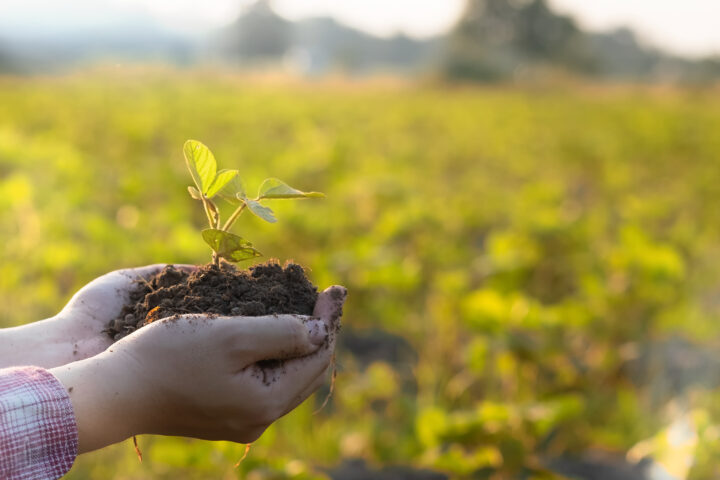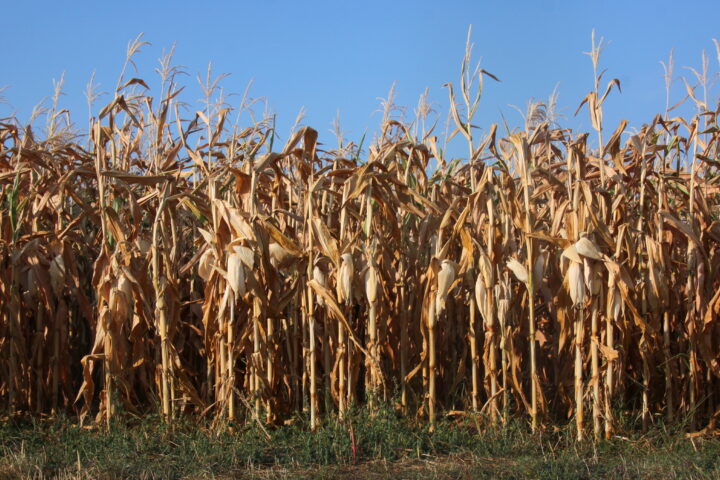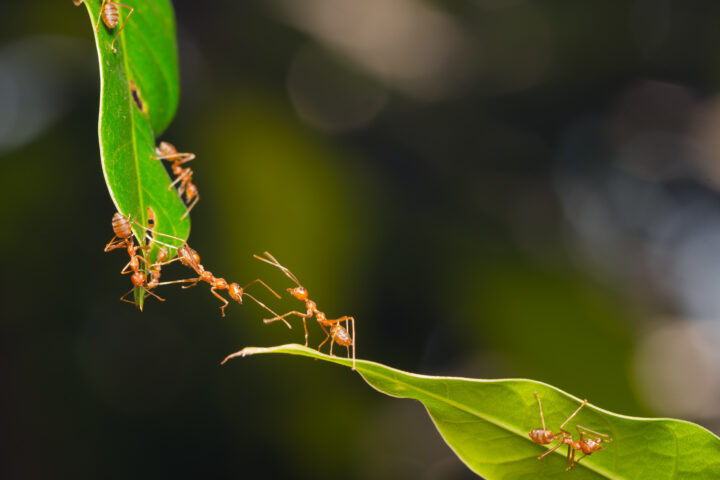«For food security, we need genuine Swiss production»
Jil Schuller is an editor at the «BauernZeitung». She writes that food security involves more than just access to sufficient food. This is one of the reasons why food security in Switzerland is not only threatened by external factors such as climate change.
Wednesday, September 1, 2021
When crops are drowning in water, and when they can’t be planted or harvested, food security becomes a pressing issue – especially when we seem to be in a disaster movie, given the news reports of out-of-control wildfires, droughts and destructive floods. In normal circumstances, anything that isn’t produced in sufficient quantities in Switzerland, or not at all, is imported. But is that still possible when the situation in other countries is no better, and perhaps even worse?
Agroscope, the Swiss Federal Research Institute, has identified dependence on imports as one of the three biggest threats to Switzerland’s food security. However, it focused on production equipment rather than food. Even things that grow in Switzerland aren’t always entirely Swiss. For example, the seed required to produce Swiss canola oil might be imported, and the fields might be treated with mineral fertilizer and protected by active ingredients produced by international companies.
As Agroscope points out, power shortages would also pose a threat to our food security. Power is needed at every level, from milking machines, to logistics and trade, to the kitchen stove. In today’s world, milking by hand, lighting candles and performing calculations in your head will not get you very far.
But when I find myself once again standing helplessly at a window, looking out at a darkened sky and hoping that the torrents of rain won’t give way to hail the size of golf balls, I’m less worried about a lack of power. And ultimately, the threat of power shortfalls and a worrisome dependence on other countries are both related to the third major risk cited by Agroscope: climate change.
Storms can tear down power lines, droughts can cause problems for power plants, and excessively high or low water levels can make it impossible for ships to navigate rivers. And then there is the problem alluded to above: If a product is also scarce in other countries, can – or should – we import it?
All of this leads to the conclusion that we need Swiss production to be as broad-based and independent as possible. An additional advantage is that production standards will reflect our values, for example concerning animal welfare and the environment. After all, food security is not just about reliable access to sufficient quantities of high-quality food; food should also meet our standards and conform to our preferences. Theoretically, it should be easy to influence all of this; food security would increase if we would reconsider our preferences and give precedence to regional and seasonal products. However, when it comes to access to food, production quantities are also critically important – which brings us back to the topic of crop failures, as well as waste.
Economic arguments are of little use in this context; as the economist Mathias Binswanger recently pointed out, Swiss agriculture doesn’t make economic sense, since it is cheaper to produce food abroad. And as a wealthy country, Switzerland is able to pay higher prices for imports than many countries. It is also important to note that we have «an oversupply of nearly all fruits and vegetables throughout the year,» according to a market overview by the trade association Swisscofel. We can therefore afford to produce huge quantities of food waste.
It would be better for us to support an agricultural sector that provides for the needs of all concerned – allowing people to make a living, while also ensuring that nutritional needs are met. This will no doubt require of us a great deal of strength, work and money – since, as the Intergovernmental Panel on Climate Change (IPCC) warns, 2021 or even 2018 will not remain «a year like no other» for very long. Switzerland is unlikely to become completely independent in the foreseeable future, but at a time of uncertainty, it makes sense to question what has been done in the past.
We also need to deal with another threat to Switzerland’s food security: thinking in purely economic terms. Domestic production is under pressure from «shopping tourism,» bargain hunting and a lack of awareness of the importance of what is regional and seasonal, as well as from rigid acceptance standards and opaque profit margins.
We’re all in the same boat – or rather, in the same country. And the wealth of mountain ranges, alpine passes and lakes within our borders does not change the fact that we are in the midst of a climate crisis. «We can't solve problems by using the same kind of thinking we used when we created them,» Albert Einstein once said. We need to take his words to heart.
Jil Schuller is an editor for the newspaper «BauernZeitung.» This article was first published in the paper’s August 27, 2021 issue.
Related articles

The Poison and the Dose
The debate about threshold values for chemical residues in water and food is often shaped by misunderstandings and emotions. Few topics show as clearly how far perception and science can drift apart. But what do limit values really mean? In autumn 2025, the Agricultural Policy Podcast and swiss-food.ch will explore our relationship with limits and risk in a five-part series. The highlight will be a live podcast recording on November 5 at Bogen F in Zurich.

Lack of diversity becomes an existential problem
The dwindling genetic diversity in fields is becoming an increasing problem. Unfortunately, this problem is growing steadily, partly because politicians in Switzerland and the EU are viewing the issue through ideological lenses instead of listening to science.

Stagnation instead of progress: Switzerland risks falling behind in new breeding techniques
An overview article in Schweizer Bauer shows how much the new breeding methods are preoccupying farming circles. Once the consultation process on the federal law has been completed, a bill is expected – then it will become clear whether there is actually the political will to approve it.

Ant infestation threatens Zurich communities
An invasive ant from the Mediterranean region is spreading rapidly in the canton of Zurich, threatening communities, construction projects, and agriculture. Insecticides could help—but their use remains severely restricted.

